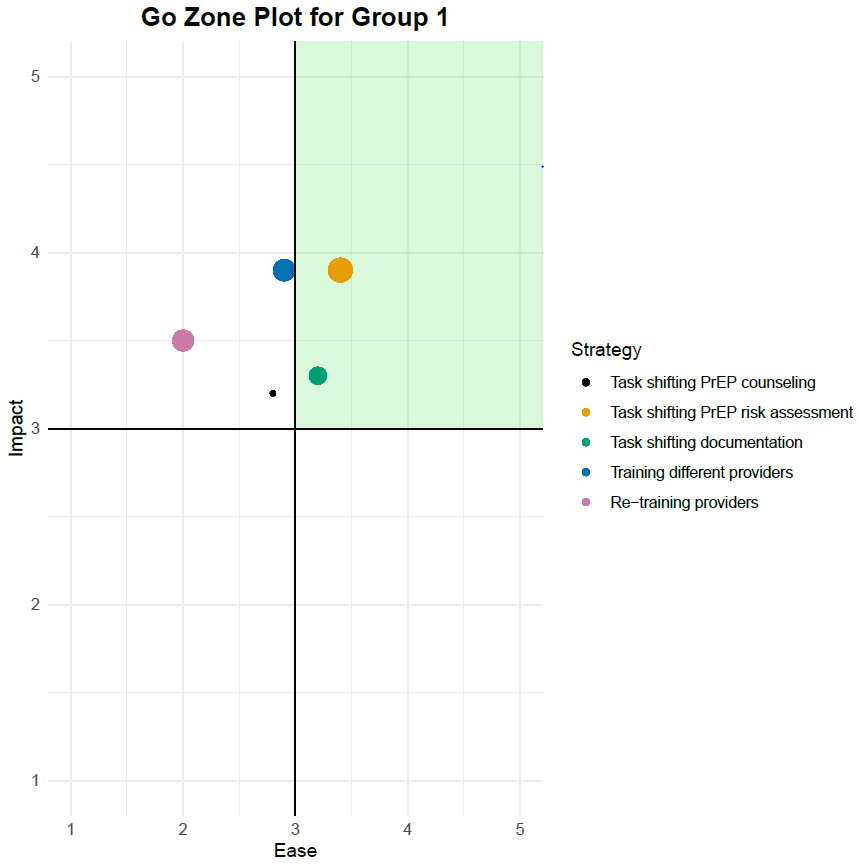November 1, 2021
Global WACh Graduate Certificate Student Sarah Hicks helps facilitate a virtual workshop to identify best PrEP delivery approaches in maternal-child health clinics in Kenya
 For the required 90-hour Global WACh Certificate capstone, Sarah Hicks, a 2nd year student in the Department of Epidemiology, wanted to use the opportunity to join a HIV research team to understand what goes on “behind the scenes” of a large international study and to build on quantitative data management and processing skills. The PrEP Optimized for Mothers: Efficient PrEP Integration in MCH Clinics (PrEPARE) study, led by investigators Dr. Anjuli Wagner and John Kinuthia from the Department of Global Health, was a natural fit. PrEPARE seeks to identify ways to improve the efficiency of PrEP integration within maternal-child health (MCH) clinics in Kenya through stakeholder engagement, identifying challenges to implementation in the health system, and piloting and evaluating optimized MCH-PrEP approaches that decrease health care workers’ workload and enhance client experiences.
For the required 90-hour Global WACh Certificate capstone, Sarah Hicks, a 2nd year student in the Department of Epidemiology, wanted to use the opportunity to join a HIV research team to understand what goes on “behind the scenes” of a large international study and to build on quantitative data management and processing skills. The PrEP Optimized for Mothers: Efficient PrEP Integration in MCH Clinics (PrEPARE) study, led by investigators Dr. Anjuli Wagner and John Kinuthia from the Department of Global Health, was a natural fit. PrEPARE seeks to identify ways to improve the efficiency of PrEP integration within maternal-child health (MCH) clinics in Kenya through stakeholder engagement, identifying challenges to implementation in the health system, and piloting and evaluating optimized MCH-PrEP approaches that decrease health care workers’ workload and enhance client experiences.
Sarah assisted the team prepare for a virtual workshop to elicit feedback from stakeholders, including policymakers and members of national- and county-level AIDS prevention organizations, on the most feasible and effective PrEP delivery strategies to implement in Kenya. The workshop aimed to highlight stakeholders’ successes and challenges to deliver PrEP, including how users of PrEP accessed this treatment in the past and what delivery approaches worked well or could be improved.
Sarah held a variety of responsibilities that included preparing protocol modifications associated with human subjects research and working with the Kenyan PrEPARE team to develop PowerPoint slide deck templates and facilitation guides for presenters to use during the small-group discussions. The Kenyan team provided helpful input, based on their cultural understanding of the stakeholders, to strengthen these materials that fostered high engagement during the workshop. Sarah also created interactive virtual surveys that allowed workshop participants to rank PrEP delivery strategies in real-time.
Using the survey outputs, Sarah and the PrEPARE team created unique sets of R code that visually transformed participants’ responses into interpretable data visualizations called “Go-Zone plots.” They thoughtfully incorporated stakeholders’ feedback to make the plots intuitive and understandable to the workshop participants. These plots helped generate rich group discussions and gain consensus during the workshop.

One of the “Go-Zone plots” in which workshop participants ranked various PrEP delivery strategies by feasibility (ease) and effectiveness (impact).
From her capstone experience, Sarah learned the value of working with a large cohesive team that is supportive of one other and prioritizes open communication. She particularly credits her capstone advisor and PrEPARE co-investigator, Dr. Anjuli Wagner, and study team members, Julia Dettinger and Laurén Gomez, for their thoughtful mentorship and guidance throughout this educational and professional development journey.
“I also applied the coding skills I learned in my coursework over the last year which was such a fantastic opportunity to develop something from scratch rather than for the purposes of an assignment. There were many practical issues that I was able to work through, said Sarah, “For example, since the data would be collected in real time during the workshop, I had to run through many versions of test data to make sure that the tools were working appropriately. Training others on how to use these tools was also a great exercise in both teaching and solidifying my own knowledge of the code. I will certainly take this experience forward with me as I continue to conduct research in new settings.”
We look forward to sharing more about Sarah capstone activities and outcomes at Global WACh’s Capstone Poster event in Spring 2022.